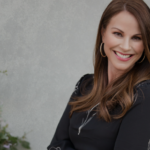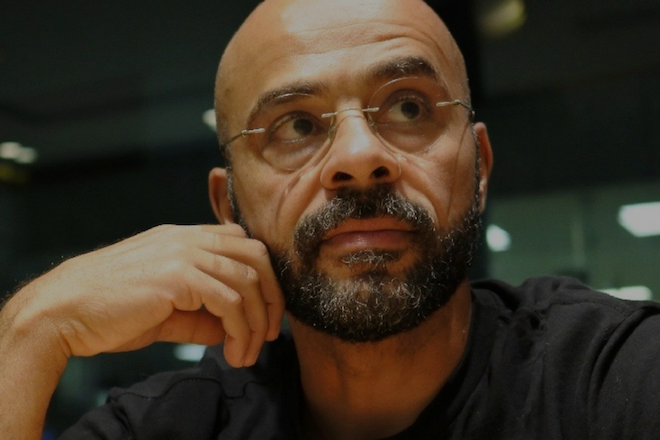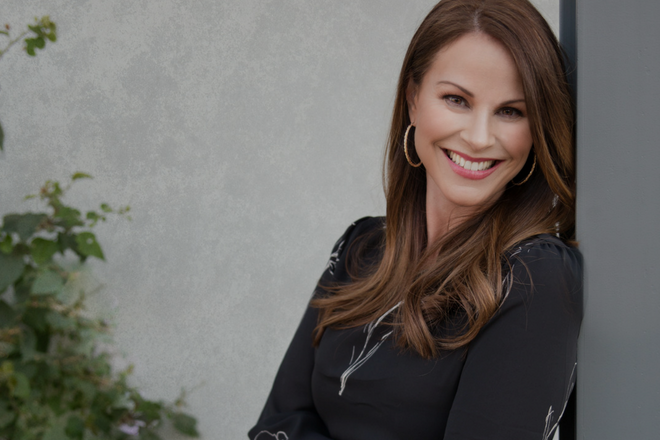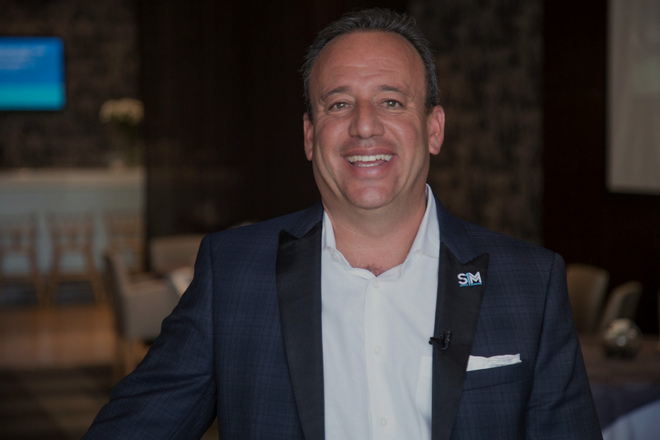“When you motivate yourself with big expectations, you end up achieving much more than if you don’t. It’s how you react to missed expectations that determines your happiness.”
Mo Gawdat – Chief Business Officer Google X; Solve For Happy; Removing “unhappy” feelings; Understanding expectations; Carrying his son’s mission forward.
Segment 1: (Length :04:00) – General Updates; Introduction to Mo Gawdat and his journey as an entrepreneur; Being a creator; discovering a happiness formula; his first struggles with “unhappiness”.
Mo’s finer points:
“Well I … on the business side and on the career side, I think hard work and good luck. Fortune. I think a lot of the people who managed to have big titles on their business cards, think that they did it themselves. I refuse that notion. I worked really really hard, I tried the best I could. But there are always other people out there that were as qualified, if not more qualified than me to get certain jobs that propelled me forward.”
And there was an element of luck that I have to be grateful for. And I think that we all sometimes don't realize that life is bound to come with some interesting curve balls and some interesting helping hands and one of the ways to succeed in our careers and businesses to realize and recognize those when they happen and hopefully capitalize on them to make steps forward. Whether they're good or bad by the way, whether they're for you or against you, realizing them and recognizing them. That makes a huge difference.
“On my entrepreneurship or my co-founding career, I think it was mostly a very strong passion to create and hopefully be able to make a difference just beyond going to work everyday in the morning and working in corporate America, which sometimes makes tremendous difference to the world like my career at Microsoft or at Google has been.”
“But it’s also being able to have your hands close to the real fire and really create something out of the heat that happens there.”
“Solve for Happy, of course, was probably, now, say Chapter 3 of my life, if you want, where happiness has been a big topic for me as you said, for twelve years.”
Despite my career success and financial success. I wasn't always happy, and so I had to research the topic. Funny enough, as an engineer, because my mind could not understand other spiritual and practice type literature about happiness that's out there. And through twelve years of research and the support of my wonderful son, Ali, who was truly an idol of happiness, we managed to develop a model that works, surprisingly it really really works.
“If you understand how the human machine works and what triggers unhappiness as an engineer, you can fix it. You can actually find out the errors and remove them. And the book came out in March, and it has been a tremendous success and since I’ve been dedicating a big part of the last six months to my mission of trying to get the message to 10 million people and make 10 million people happy.”
“Yeah, I think that is a divergent trend, actually. There is no doubt we’ve never been unhappier. It’s really weird, because there has never been a time where we, as humanity, were safer or had better health, or had better subjective well being, and in general, things are okay.”
“But people are more and more unhappy. At the same time, there is a clear trend, if you want, for people deciding to do something about it. They’re deciding to understand their real self, and what causes the unhappiness, and hopefully find ways to fix it.”
And I think what I'm trying to do in Solve for Happy, is I'm trying to document the process of happiness and unhappiness in a way that appears a lot more to the modern day warriors, as I call them.
“People like you and I who don’t have the luxury of spending six months in Bali, or going to an ashram somewhere or learning to become as a monk, which by the way, works for your happiness. But if you want to continue to be engaged in life and make a difference to the world and really have an impact on humanity or being at large, you need to understand happiness differently.”
“And what you rightly said is that there is something missing. A lot of people don’t find happiness because they don’t realize that they’re looking in all the wrong places.”
“And one of the core assumptions of what I built my model on top of is I was happy by default. I was born happy. I remained happy for so many years until age 23. I was the happiest young man you can ever see.”
And then, the more I engaged in life, in the modern world, the more unhappy I became, which in my definition means, either something went wrong with the machine, so there is a part that needs to be fixed, or that this new environment of being engaged in the modern world requires ... it's not exactly how I functioned, and so maybe we change the tires of our car to snow tires in winter.
“Maybe there was something I needed to change to find that happiness. And once again, I think when people look deep, they will find that minor minor changes can give them very low mileage on the happiness road. Sorry, very far mileage on the happiness road.”
“Yeah, this was my first struggle if you want. I’m in my early thirties, I’m struggling with depression, even though very successful, I’m reading all of those books, I’m unable to understand them, and it hit me that one of the reasons why I didn’t understand them is because I actually don’t know what I’m looking for.”
“So I started looking for a definition of happiness anywhere. And I couldn’t find any. It’s that wonderful feeling we have when we want the world to be exactly as it is right now, but that good enough definition, and as an engineer, that didn’t make sense to me. If I have to solve a problem, I have to know what the problem is. Right?”
“It literally is comparing every event that happens in your life and saying okay, this event meets my expectations, perfect, stay happy. Or, this event or a combination of events is not meeting my expectations, switch on the dashboard light, alert alert alert, feel unhappy.”
Surprisingly, nothing ever makes you happy. There are only things that make you unhappy. If you remove unhappiness, what remains inside is happy. It really an interesting view
Segment 2: (Length :08:00) – Talking with Mo Gawdat; Removing the “unhappy” feelings; Understanding expectations; Losing his son; Carrying his son’s mission forward; Solve For Happy.
Mo’s finer points:
“Look at any child you’ve ever seen. They don’t need an Xbox, they don’t need iPhone 8 to be happy. They don’t need a promotion to be happy. Children need to be fed, given their basic needs for survival, and if they have their basic needs for survival, their default setting is happy. Right?”
If you remove the reasons for unhappiness, what's left inside us is happy. And so again, one of the differences in my approach was, I was no longer looking for reasons to be happy. I started looking for the reasons that were making me unhappy. If I remove those, I'm happy.
“Every Sunday morning when you wake up and the sun is shining and you don’t have work pressure, and your boss is not annoying you, you don’t need that promotion you’ve been obsessing about for three weeks. The minute there is no reason to be unhappy, you’re happy.”
“It’s peace, really. The translation of the equation is you’re comparing events to expectations and you’re okay with what’s going on. That basically means I like life as it is. This is what happiness is. That peace that I like happiness. I like life as it is right now.”
“Every time I show this equation to achievers and entrepreneurs, and Googlers and smart people who are trying to engage in life, they go, “Whoa, I found it!” The answer here is, let’s minimize expectations, and so accordingly, I will always return a positive value for my happiness. By the way, surprise surprise, that’s true. Right?”
When you motivate yourself with big expectations, you end up achieving much more than if you don't. It's how you react to missed expectations that determines your happiness.
“Setting high expectations determines your success and we want to be successful. Reacting to how expectations are, to the times that expectations are missed, is really what determines your happiness.”
“The example I give about that, harsh as it sounds, is the loss of my son. Right?”
“I planned everything for Ali. Everything. I loved that boy. He was my son, he was my best friend, he was my mentor and coach, even on the topic that mattered to me most, which was happiness, right? And I planned everything for him. I had an insurance policy on my life in his name, I had tuition plans for him, I even started businesses, believe it or not. Every time he changed majors, I started a business in the major that he specialized in, so when he graduates, he would run it, and he died. Plans were missed. Expectations, unfortunately, did not happen. Right? And how do you handle that?”
Most people will say, oh, expectations are missed. I should sit down in my room and cry for the next 27 years, which by the way, no one would have blamed me for. If you've ever met Ali, he's worth 27 years of crying. I'm being very honest here.
“But that wouldn’t make any difference to the world other than make me suffer. Make me suffer, make his mother suffer, make his sister suffer, make my team at Google X suffer, make the world a worse place. Right? And by the way, it would make Ali suffer. Do you actually think that Ali wants me to sit down and cry? Do I really have to prove to the world that I love him by crying? He knows I love him dearly.”
“Now, the other alternative, which most people don’t understand, is life misses expectations very regularly. The last time I hugged Ali, life was up here, it was all the way in the clouds. It was beautiful. My son is an amazing young man. He’s successful, everything’s okay.”
“The minute he left, my heart was crushed. Right? Life went down a mile. And what do you want to do? Do you want to stay there for the rest of your life? Or do you want to make tomorrow a little better than today and after tomorrow, a little better than tomorrow?”
“And I literally rushed to write the model that we developed together in Solve for Happy, because Ali was no longer there to guide me, but at the same time, I set that target of 10 million people happy, which by the way, would not bring Ali back. Let’s be very clear. Nothing would bring Ali back. Right?”
But at least, it would make his departure worthwhile, if you want. If 10 million people become happier, as a result of Ali's departure, then things are a little better.
Segment 3: (Length :10:00) – Paying it forward with happiness; Deciding to be happy; You have control.
Mo’s finer points:
If we stop handling all of the challenges that come to us, based on our egos and differences and opinions and competitiveness and all of the ways we're driving life now. Instead, I'm setting myself a target of 10 million people and I'm encouraging everyone that finds happiness through the model of Solve for Happy, to go out and make two people happy. And ask them to make two people happy each. Right?
“Or maybe if you want to take a big quota, make 10,000 people happy. And ask them to make two people happy each. Right? But reality is, you need the intention of us becoming more of a closer society that’s trying to make all of us happy together. Right? And you need a model that works. Trust me, the model works.”
“If you understand how the human machine works, and why happiness is truly one of our most basic survival mechanisms, and unhappiness can be removed if you understand it this way, and what’s left behind is happy.”
There is a model that works, but I'm calling out on people to commit not only to make themselves happy, but to reach out and make others happy. Carry their own quota and their own target. In that case, my 10 million may end up being 100 million, may end up being a billion, I don't know. But it is the one thing that our world needs most today
“I clearly think there is a turning point. And one of the most interesting things I advocate in Solve for Happy is you are absolutely in charge. Right? Which I think is a very important topic for the modern day warriors, if you want.”
“Happiness is a decision that’s starts with you choosing to be happy. It’s almost like going to the gym. Right? I can tell you, if you eat healthy and go to the gym for five times a week, you’ll be fit, but knowing that does not make you fit.”
“You actually have to take charge. Right? You have to decide to be happy, and then you have to take the steps to be happy. Now the most interesting thing is in the current times, I call on people, and I say hey, you absolutely have to take charge and make a difference and engage. But you also can do that without being unhappy.”
Understand this. Unhappiness is a thought. It's an equation that's being solved in your brain. Right? Once that equation is solved, and it says hey, the current environment is not great, I need to change something about it. You've got your light on the dashboard. That's all you need. You don't need to suffer by bringing it up over and over and over.
“You can now engage in the action, and as you engage in the action, as a matter of fact, you move the thought to a different part of your brain that doesn’t make you unhappy. Right? And while you’re doing that, you’re making a difference to the world, but you’re not really suffering. You don’t need to suffer in the process.”
“The interesting thing about time is that time, even though we spend most of our lives believe it or not, inside our heads, thinking about the past and the future, you’ve never lived in the past, and you will never live in the future. When you lived yesterday, you used to call it today, and when you live tomorrow, you’re gonna call it today as well. Right?”
“And the only moment you will ever have is now. It’s just this moment. There is no other moment. And there is most of the time, other than physical pain, perhaps, there is nothing wrong with now.”
“The way to become present in the now is to actually pay attention. We over-complicate it sometimes, and say, sit in a meditation room, and look at the flickering of a candle. By the way, beautiful, absolutely works. But the flickering of the candle is similar to the numbers on a slide, is similar to the patterns on the wallpaper, is similar to the smells that are around you when you’re on a coffee shop.”
Pay attention. Pay attention, because you know what? If you're living inside your head, you're not living. That's the funny bit.
“And in the last four and a half, five years, I started to meditate on everything that crosses my path. One of the interesting exercises I do if I walk to work, is I promise myself I will take one beautiful picture before I get to work. You know how much more attention I pay to the road when I get there when I do that? You know how many more butterflies I see? It’s incredible, really.”
Segment 4: (Length :03:00) – Hustler Thought of the Day:
Every time you examine your thoughts you’ll notice that whatever you’re upset about is rooted in a past you cannot change or a future that may turn out to be completely different from what you expect. You may as well let the past or the future go and do your best to at whatever you’re doing now.
GENERAL NOTES:
Mo Gawdat – Chief Business Officer for Google X
- Mo has an impressive combined career of 27 years, starting at IBM Egypt as a Systems Engineer before moving to a sales role in the government sector. Venturing in to the UAE, Mo joined NCR Abu Dhabi to cover the non-finance sector. He then became acquainted with the consumer goods industry as Regional Manager of BAT.
-
At Microsoft he assumed various roles over a span of seven and a half years, in his last role at Microsoft he headed the Communications Sector across Emerging Markets worldwide.
- Mo joined Google in 2007 to kick-start its business in Emerging Markets. He is fascinated by the role that technology plays in empowering people in emerging communities and has dedicated years of his career towards that passion. Over a period of 6 years, Mo started close to half of Google’s operations worldwide.
- In 2013 he moved to Google’s infamous innovation arm, Google [X] where he led the business strategy, planning, sales, business development and partnerships. [X] does not attempt to achieve incremental improvements in the way the world works, but instead, it tries to develop new technologies that will reinvent the way things are and deliver a radical, ten fold—10X—improvement.
-
Alongside his career, Mo remained a serial entrepreneur who has cofounded more than 20 businesses in fields such as health and fitness, food and beverage and real estate. He served as a board member in several technology, health and fitness and consumer goods companies as well as several government technology and innovation boards in the Middle East and Eastern Europe. He mentors tens of start-ups at any point in time.
- Mo Gawdat is the author of “Solve for Happy: Engineering Your Path to Joy” (2017). Through his 12 year research on the topic of happiness, he created an algorithm and a repeatable well engineered model to reach a state of uninterrupted happiness regardless of the circumstances of life. Mo’s happiness model proved highly effective. And, in 2014, was put to the ultimate test when Mo lost his son Ali to preventable medical error during a simple surgical procedure. Solve For Happy is the pillar for a mission Mo has committed to as his personal moonshot, a mission to deliver his happiness message to 10 million people around the world.
###








